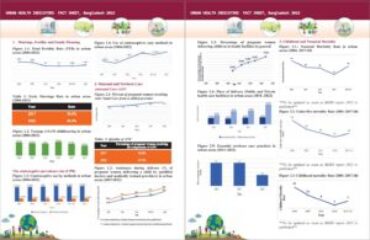
ABSTRACT
INTRODUCTION: Smokeless tobacco (ST) remains poorly regulated in Bangladesh. This study describes the prevalence and trends of ST use in Bangladesh, presents ST-related disease burden, identifies relevant policy gaps, and highlights key implications for future policy and practice for effective ST control in Bangladesh.
METHODS: We analyzed secondary data from the two rounds (2009 and 2017) of The Global Adult Tobacco Survey, estimated ST-related disease burden, and conducted a review to assess differences in combustible tobacco and ST policies. In addition, we gathered views in a workshop with key stakeholders in the country on gaps in existing tobacco control policies for ST control in Bangladesh and identified policy priorities using an online survey.
RESULTS: Smokeless tobacco use, constituting more than half of all tobacco use in Bangladesh, declined from 27.2% (25.9 million) in 2009 to 20.6% (22 million) in 2017. However, in 2017, at least 16947 lives and 403460 Disability-Adjusted Life Years (DALYs) were lost across Bangladesh due to ST use compared to 12511 deaths and 324020 DALYs lost in 2010. Policy priorities identified for ST control have included: introducing specific taxes and increasing the present ad valorem tax level, increasing the health development surcharge, designing and implementing a tax tracking and tracing system, standardizing ST packaging, integrating ST cessation within existing health systems, comprehensive media campaigns, and licensing of ST manufactures.
CONCLUSIONS: Our analysis shows that compared to combustible tobacco, there remain gaps in implementing and compliance with ST control policies in Bangladesh. Thus, contrary to the decline in ST use and the usual time lag between tobacco exposure and the development of cancers, the ST-related disease burden is still on the rise in Bangladesh. Strengthening ST control at this stage can accelerate this decline and reduce ST related morbidity and mortality.



